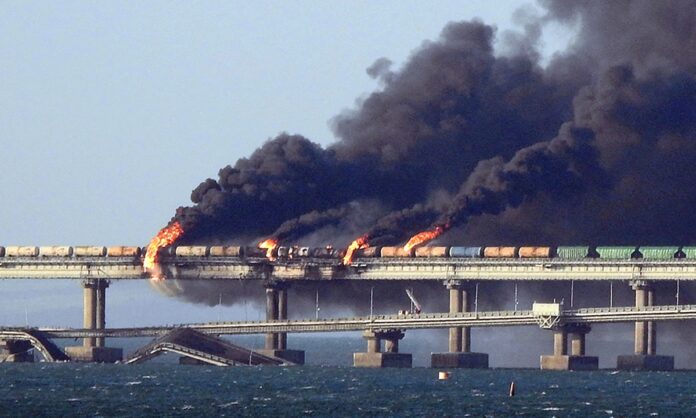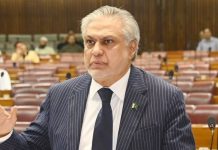BEIJING: The 2023 Munich Security Conference (MSC) kicked off on Friday in Germany, with the Russia-Ukraine conflict topping the agenda. With the first anniversary of the outbreak of the military conflict drawing near, Europe and the world are hoping for a better solution to end or at least ease the conflict, which has resulted in casualties, division and recession.
Chinese top diplomat Wang Yi was scheduled to attend the 59th MSC held from Friday to Sunday, and is expected to deliver a speech at the China session to make clear China’s abiding commitment to peaceful development and convey its vision on security.
Wang Yi, a member of the Political Bureau of the Communist Party of China (CPC) Central Committee and director of the Office of the Foreign Affairs Commission of the CPC Central Committee, is the highest-ranking Chinese official to visit Europe since the 20th CPC National Congress. He is also the first senior Chinese official to participate in the MSC in three years since the COVID-19 pandemic started, which observers believe shows the great significance that China attaches to the conference. The MSC brings together about 40 heads of state and government, as well as hundreds of policymakers and security experts from about 100 countries. Organizers did not invite Iran and Russia, according to media reports.
US Vice President Kamala Harris and Secretary of State Antony Blinken are also scheduled to attend the three-day conference, with a possible meeting taking place between the latter and Wang Yi amid an ongoing spat over the “balloon incident.”
NATO Secretary General, Jens Stoltenberg, will also attend the MSC and is expected to take part in bilateral engagements.
Analysts said that although Europe has been the biggest victim of the Russia-Ukraine conflict, given the dominant role of the US in transatlantic relations, they were not optimistic that the MSC could bring about a constructive solution. China, on the other hand, has always stuck to its role in promoting peace talks, and will take advantage of the multilateral stage to explain its concept of security and resolve misunderstandings. Wang Yi’s attendance may also help Europe better understand China’s position on global security, military development and the Ukraine crisis, and build more mutual trust so as to better implement China’s security propositions, they said.
On Friday’s opening ceremony, German Chancellor Olaf Scholz and French President Emmanuel Macron both expressed the “sustained backing” for Ukraine after Ukraine President Volodymyr Zelensky called for more weapon delivery. However, analysts believed the worsening situation caused by military conflict has given Europe a sense of urgency to resolve the crisis, as Macron also addressed that it was absolutely necessary to already begin preparing the terms of peace for Ukraine.
Regarding the Russia-Ukraine conflict, the focus of the MSC, Wang Yi said that China had adopted an objective and impartial attitude and was always committed to promoting peace talks, during his meeting with French President Emmanuel Macron on Wednesday.
China stood ready to cooperate with the international community to promote a path to a political solution and reach a ceasefire at an early date, Wang Yi said.
Cui Hongjian, director of the Department of European Studies at the China Institute of International Studies, told the Global Times on Friday that China believes that conflicts cannot be fundamentally resolved through military means, and a ceasefire is necessary.
Russia and Ukraine should hold direct dialogue and communication without interference from outside factors. In addition, given the complex causes of the Ukraine crisis, talks must also be held between Russia and the US, and Russia and NATO, Cui said.
“Resolving only the conflict between Russia and Ukraine is not a fundamental solution… Even if the two sides manage to achieve a ceasefire, tensions could flare up again in the future,” said Cui, taking the Minsk agreements in 2014 as an example.
After the outbreak of the Russia-Ukraine military conflict, Europe followed the US in imposing sanctions on Russia, and has suffered strikes, protests, and industrial and capital outflows. The deteriorating situation has made Europe feel a sense of urgency in solving the crisis, but for now, experts say it will be difficult for Europe to come up with a unified plan.
–The Daily Mail-Global
Times news exchange itrm




